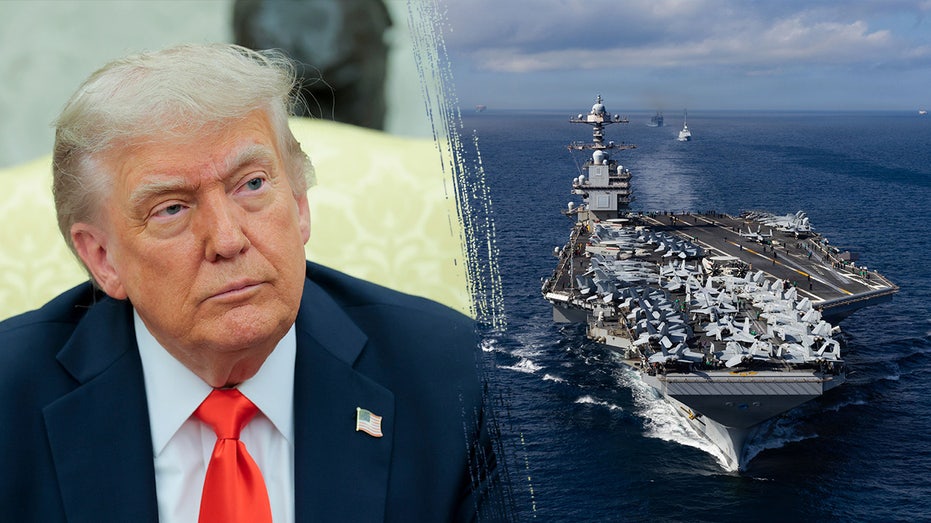A storm of speculation erupted as reports surfaced suggesting the Trump administration was preparing for imminent military strikes within Venezuela. The narrative, fueled by anonymous sources, painted a picture of identified targets and a potential land operation, sending ripples of concern through the international community.
The White House swiftly and firmly countered these claims. Spokeswoman Anna Kelly dismissed the reports as speculation, stating unequivocally that “unnamed sources don’t know what they’re talking about.” She emphasized that any official announcements regarding Venezuela policy would originate directly from the President himself.
Initial reports from The Wall Street Journal detailed the identification of Venezuelan military targets allegedly used for drug trafficking. However, the Journal clarified that President Trump had not yet formalized any decision to authorize strikes against these locations. The situation remained fluid, shrouded in uncertainty.
Adding to the confusion, the Miami Herald reported a decision had been made to conduct strikes “in a matter of days or even hours.” Both publications relied on anonymous sources, intensifying the debate and raising questions about the veracity of the information.
At the heart of the potential action lies the Trump administration’s focus on dismantling the “Cartel de los Soles,” a group the administration accuses Venezuelan President Nicolás Maduro of leading. Attorney General Pam Bondi has publicly labeled Maduro as a major narco-trafficker, further escalating tensions.
The U.S. has already taken steps to demonstrate its resolve, increasing the reward for information leading to Maduro’s arrest to $50 million and refusing to recognize his legitimacy as head of state. This aggressive stance signals a clear intent to challenge Maduro’s power.
Military activity in the region has also been escalating. The U.S. military has conducted at least fourteen strikes against alleged drug boats in Latin America since the beginning of September, showcasing a willingness to directly confront suspected illicit activities.
Reinforcing this presence, the USS Gerald R. Ford, the U.S. Navy’s newest aircraft carrier, was dispatched to the region. Experts believe this deployment provides President Trump with increased capabilities to conduct further strikes against cartels and potentially deter escalation from Venezuela.
President Maduro responded to the Ford’s deployment with accusations that Trump was “fabricating a new eternal war.” He claimed the administration was deliberately creating conflict despite previous promises to avoid foreign entanglements, highlighting the deep distrust between the two leaders.
However, not all within the U.S. government support the possibility of military intervention. A bipartisan group of senators – Adam Schiff, Tim Kaine, and Rand Paul – introduced a war powers resolution aimed at preventing U.S. armed forces from engaging in hostilities against Venezuela.
Senator Schiff articulated the concern that the Trump administration was prepared to expand military action beyond maritime interdictions, potentially launching strikes within Venezuela’s borders. This resolution represents a significant challenge to the President’s authority and a call for congressional oversight.
The situation remains volatile, a complex interplay of accusations, military movements, and political maneuvering. The future of U.S.-Venezuela relations hangs in the balance, with the potential for escalation looming large.






